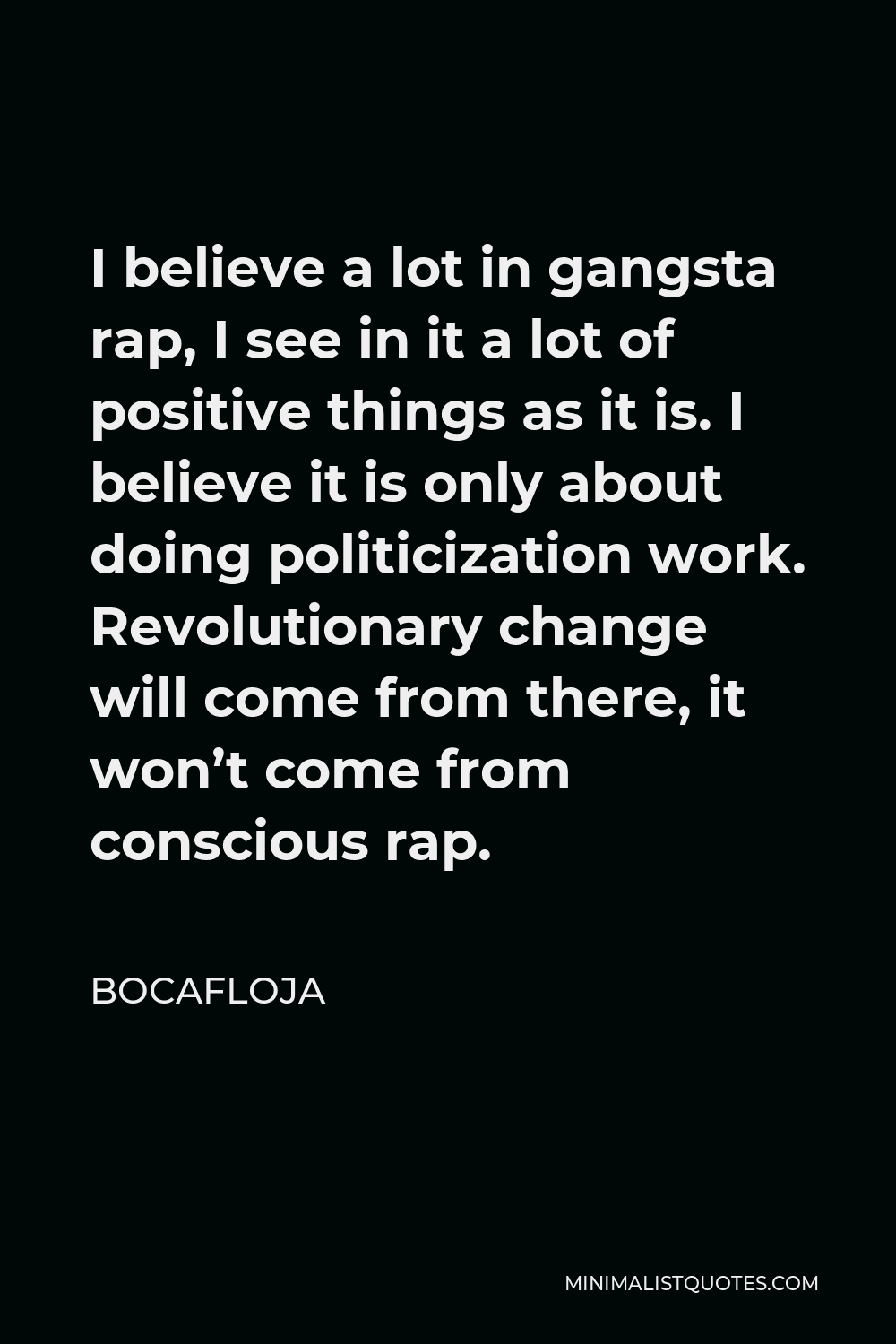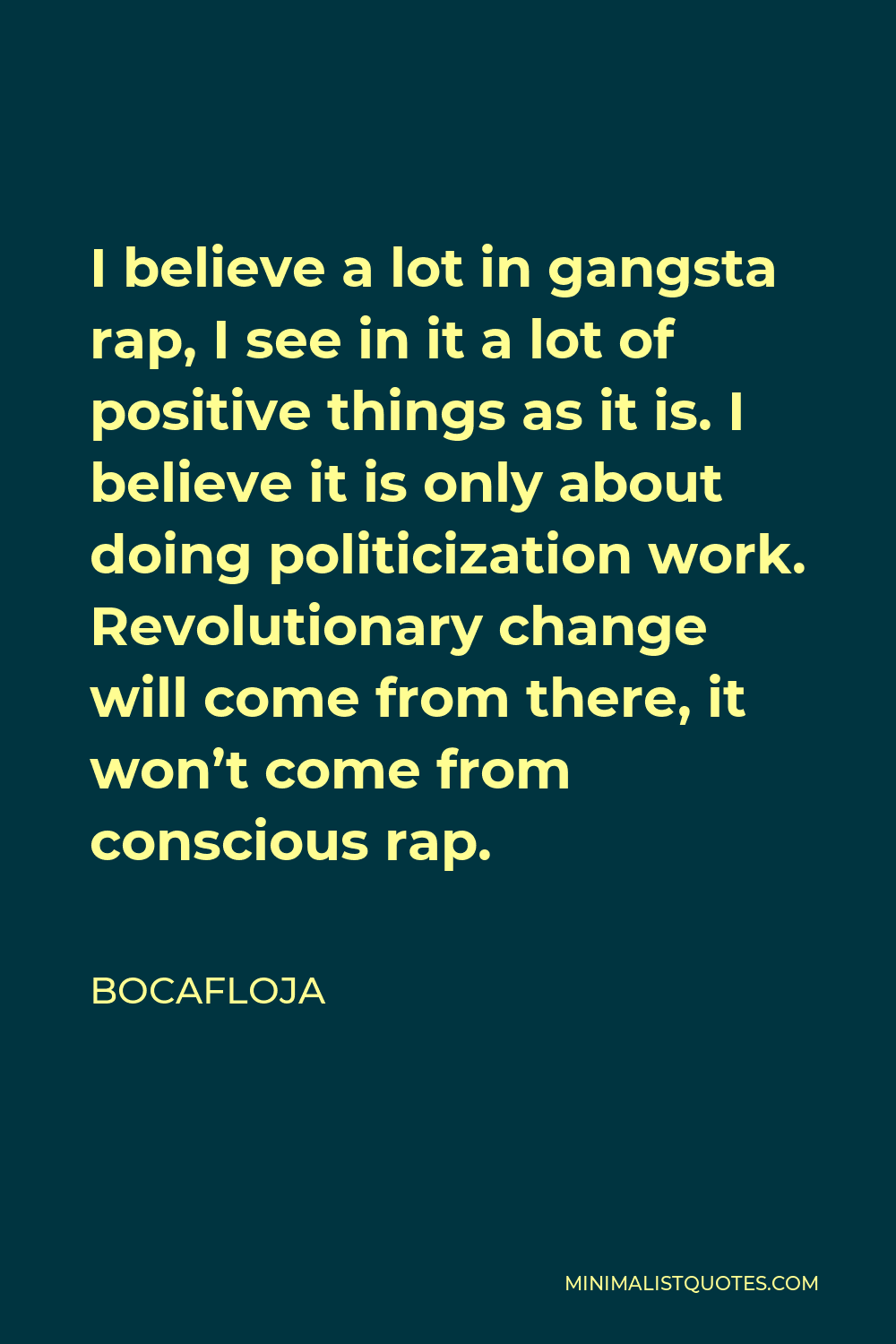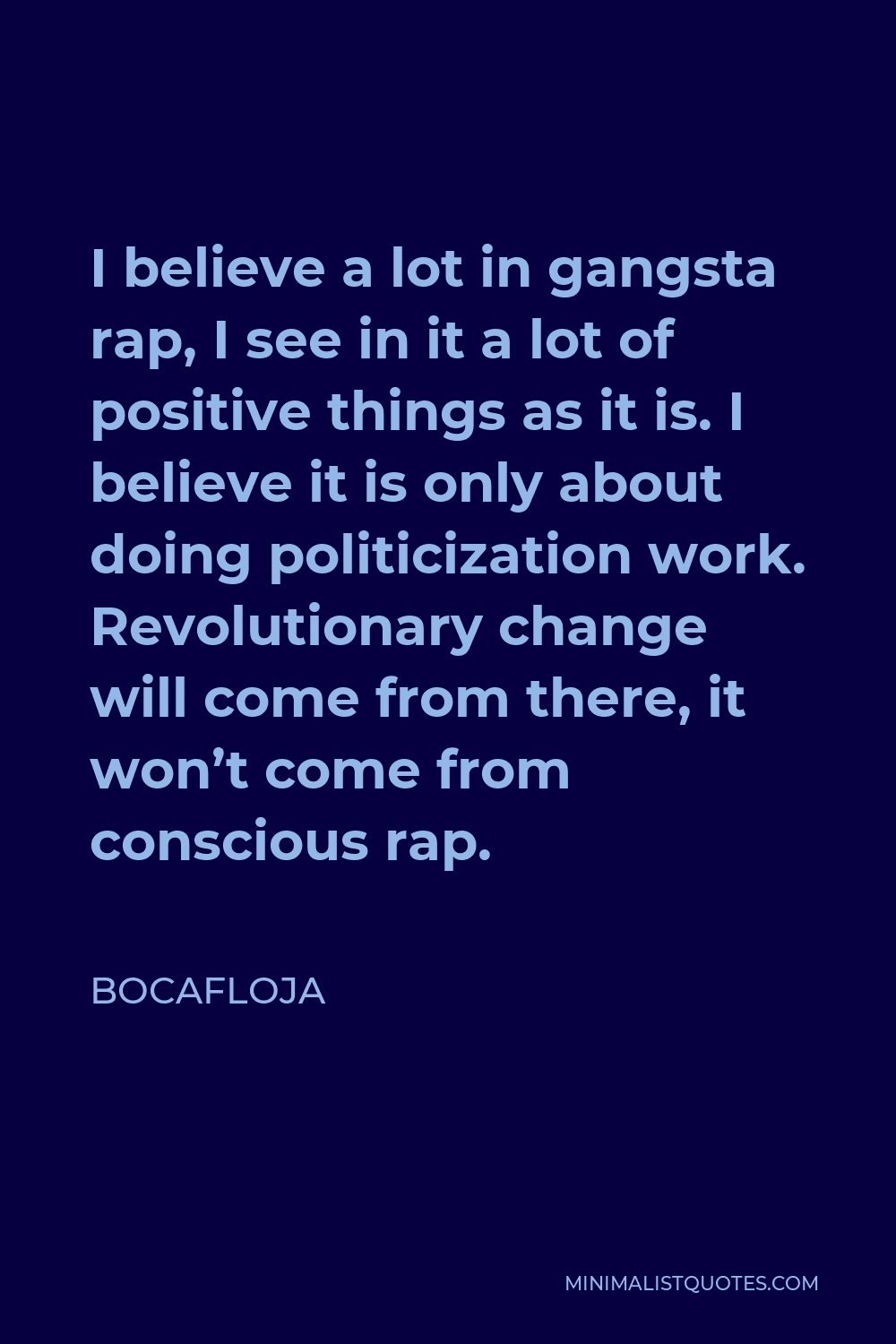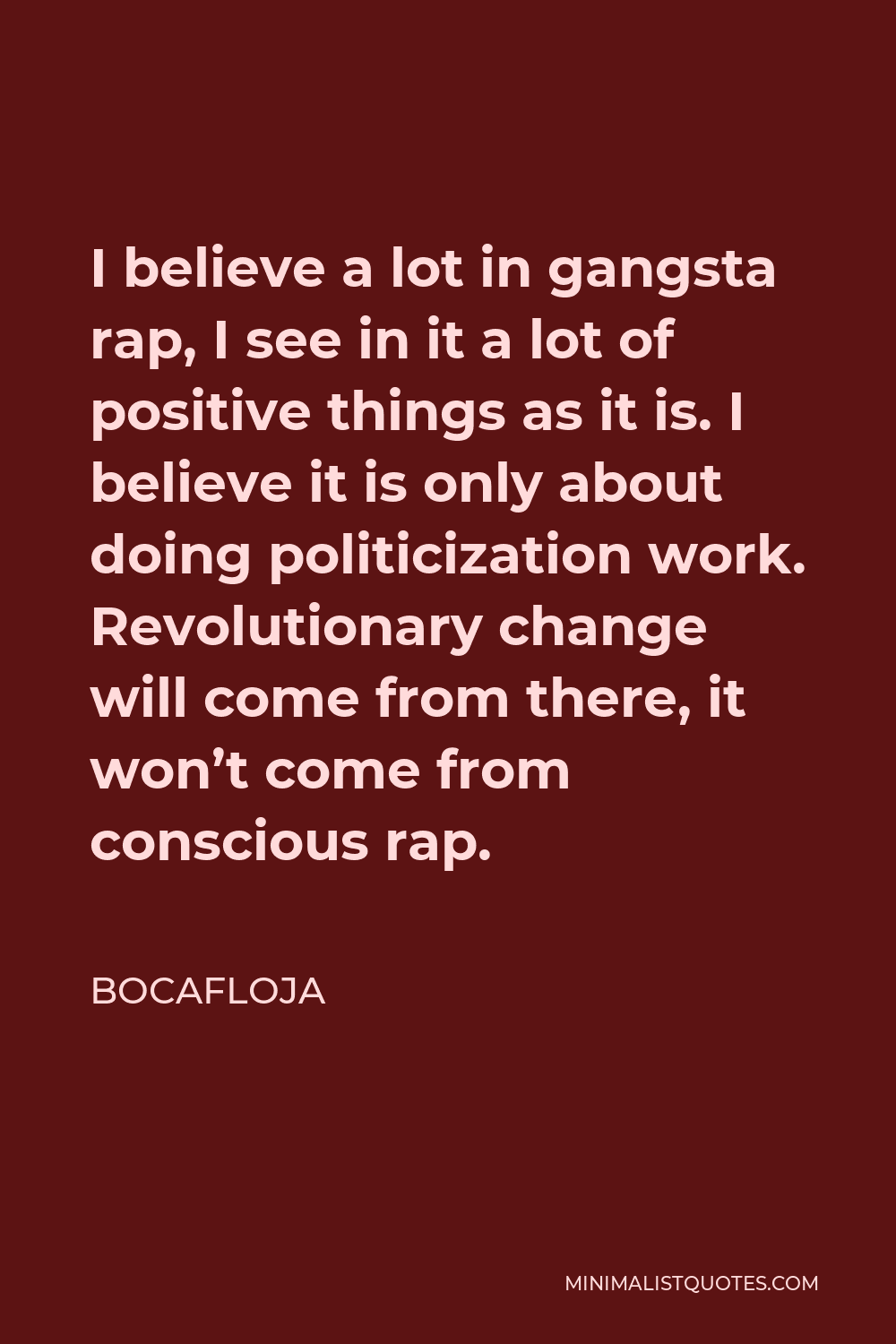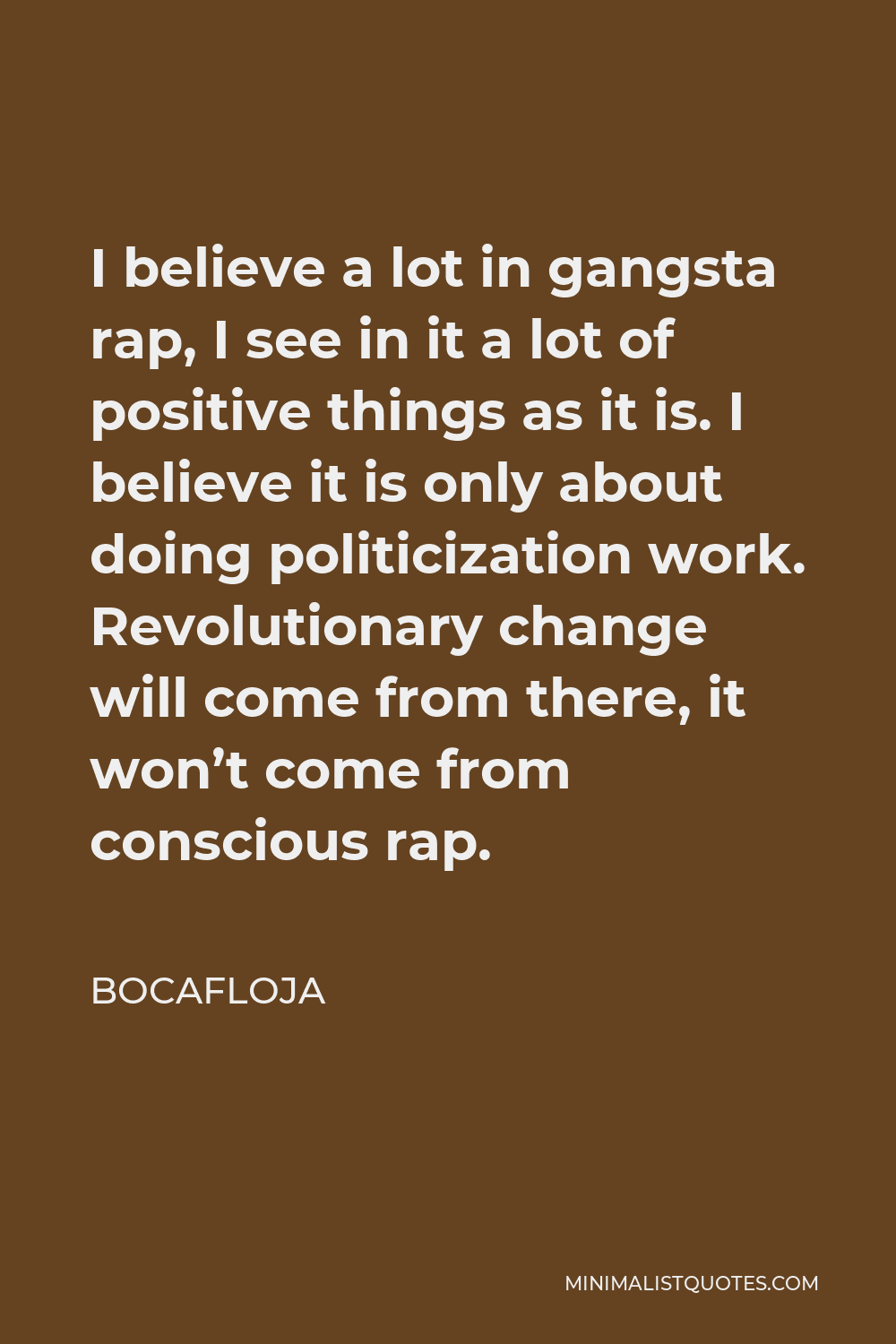I believe that we have to play the game of strategy, and understand how to move the pieces because this is how the political spectrum functions.
BOCAFLOJAI believe a lot in gangsta rap, I see in it a lot of positive things as it is. I believe it is only about doing politicization work. Revolutionary change will come from there, it won’t come from conscious rap.
More Bocafloja Quotes
-





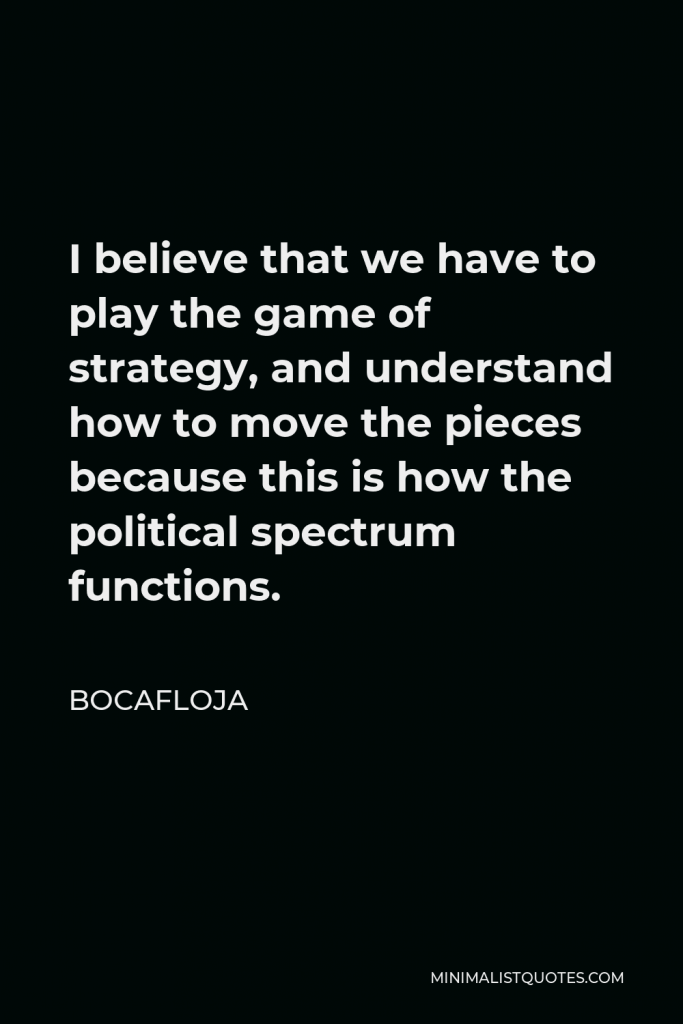

-





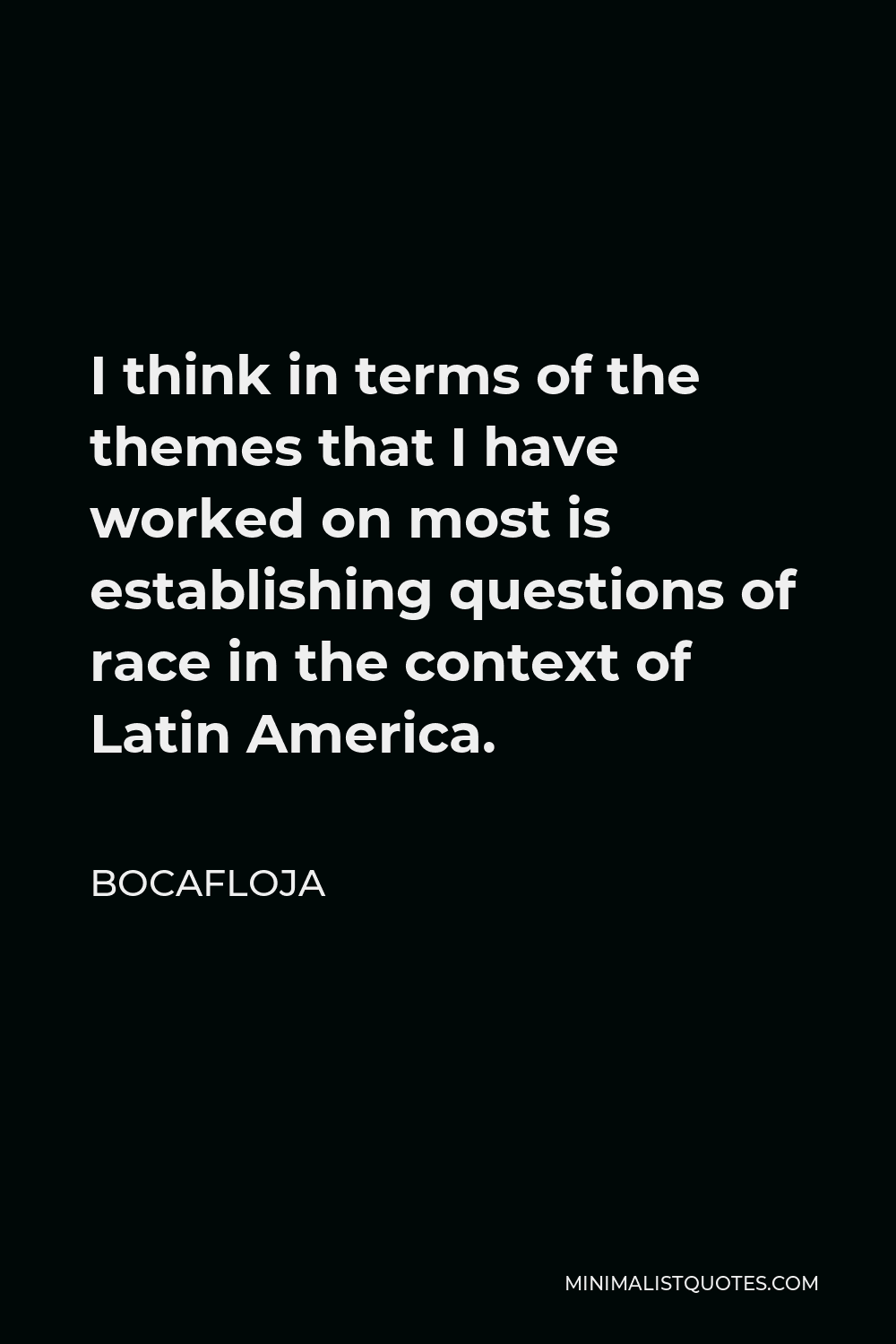
I think in terms of the themes that I have worked on most is establishing questions of race in the context of Latin America.
BOCAFLOJA -





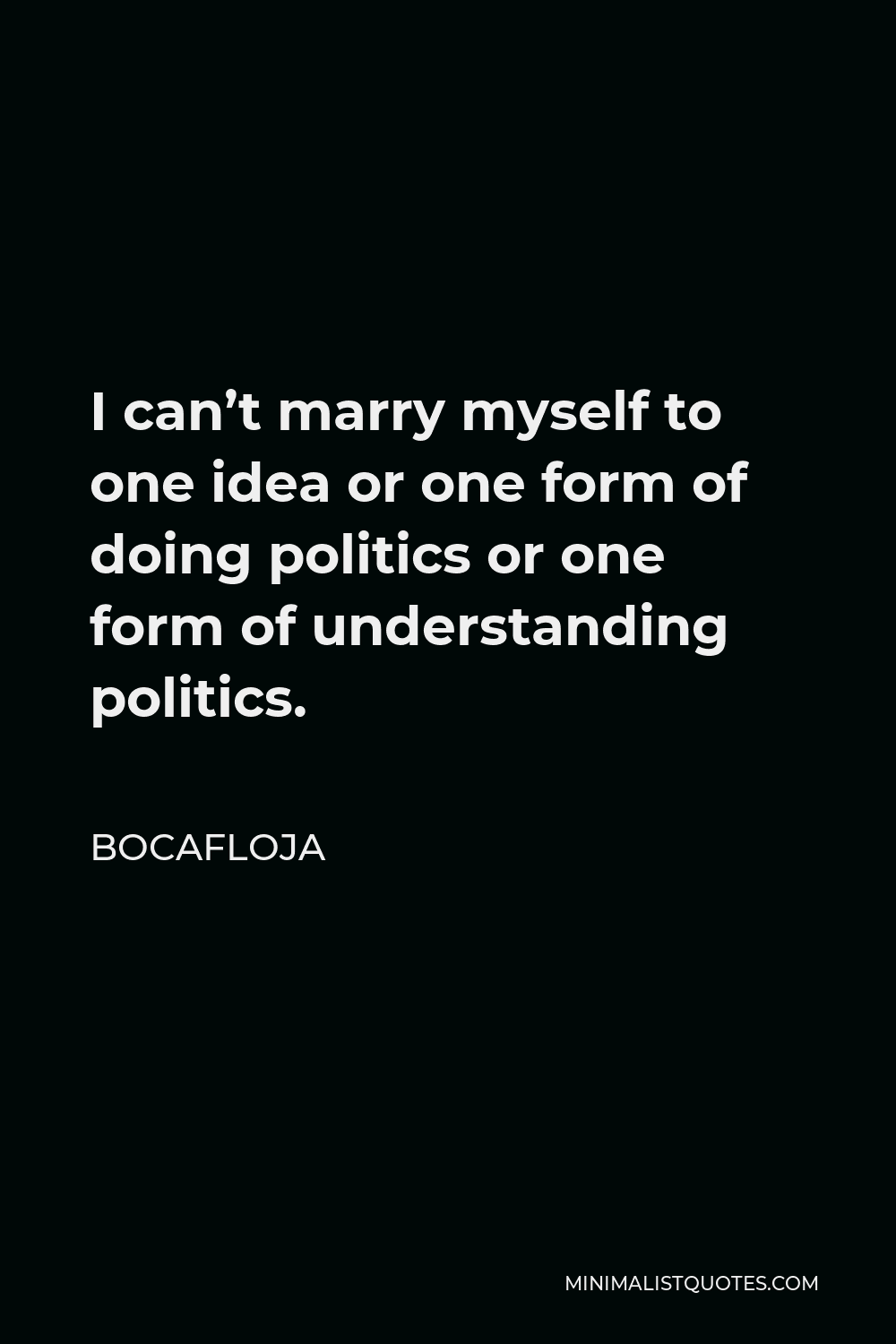
I can’t marry myself to one idea or one form of doing politics or one form of understanding politics.
BOCAFLOJA -





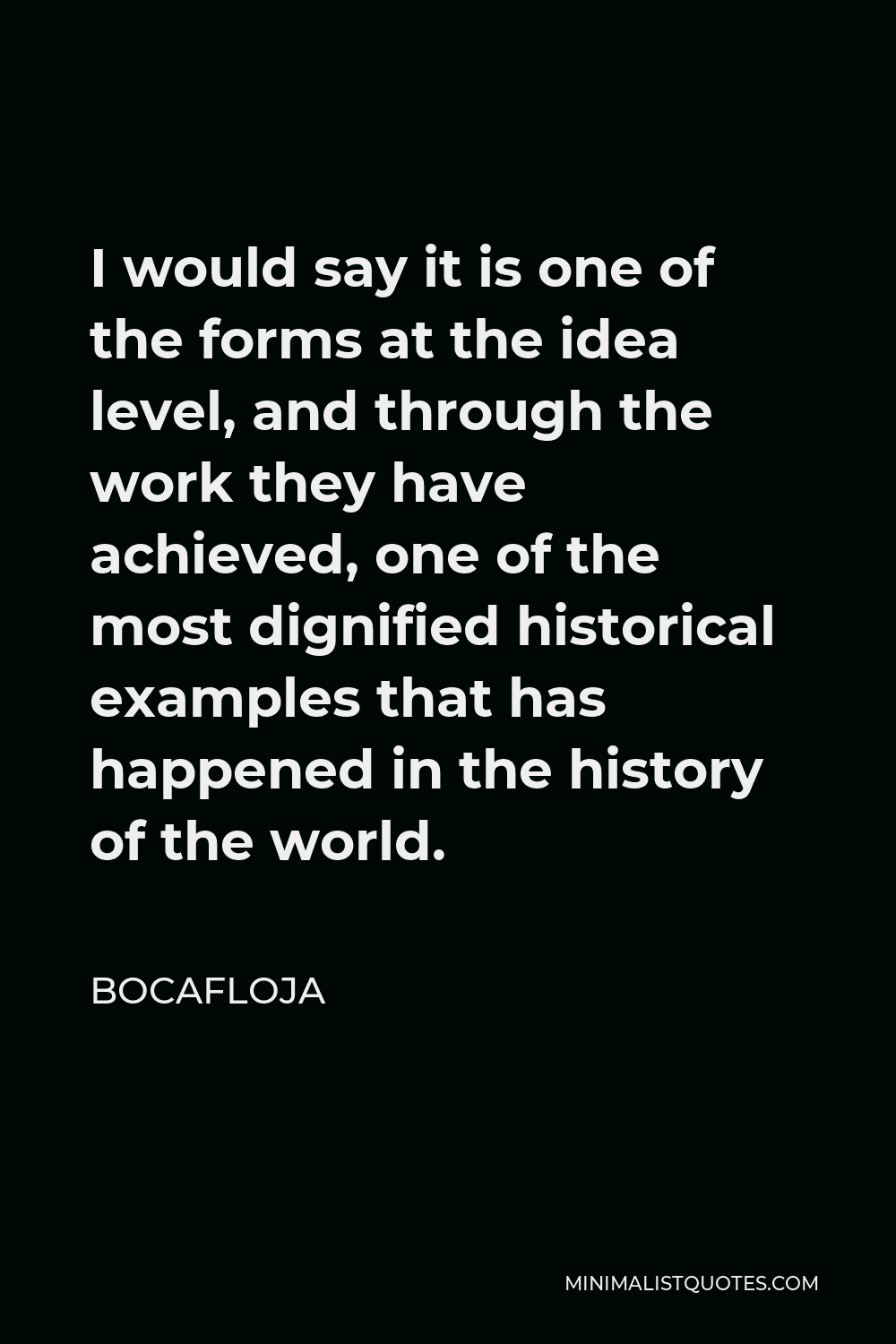
I would say it is one of the forms at the idea level, and through the work they have achieved, one of the most dignified historical examples that has happened in the history of the world.
BOCAFLOJA -





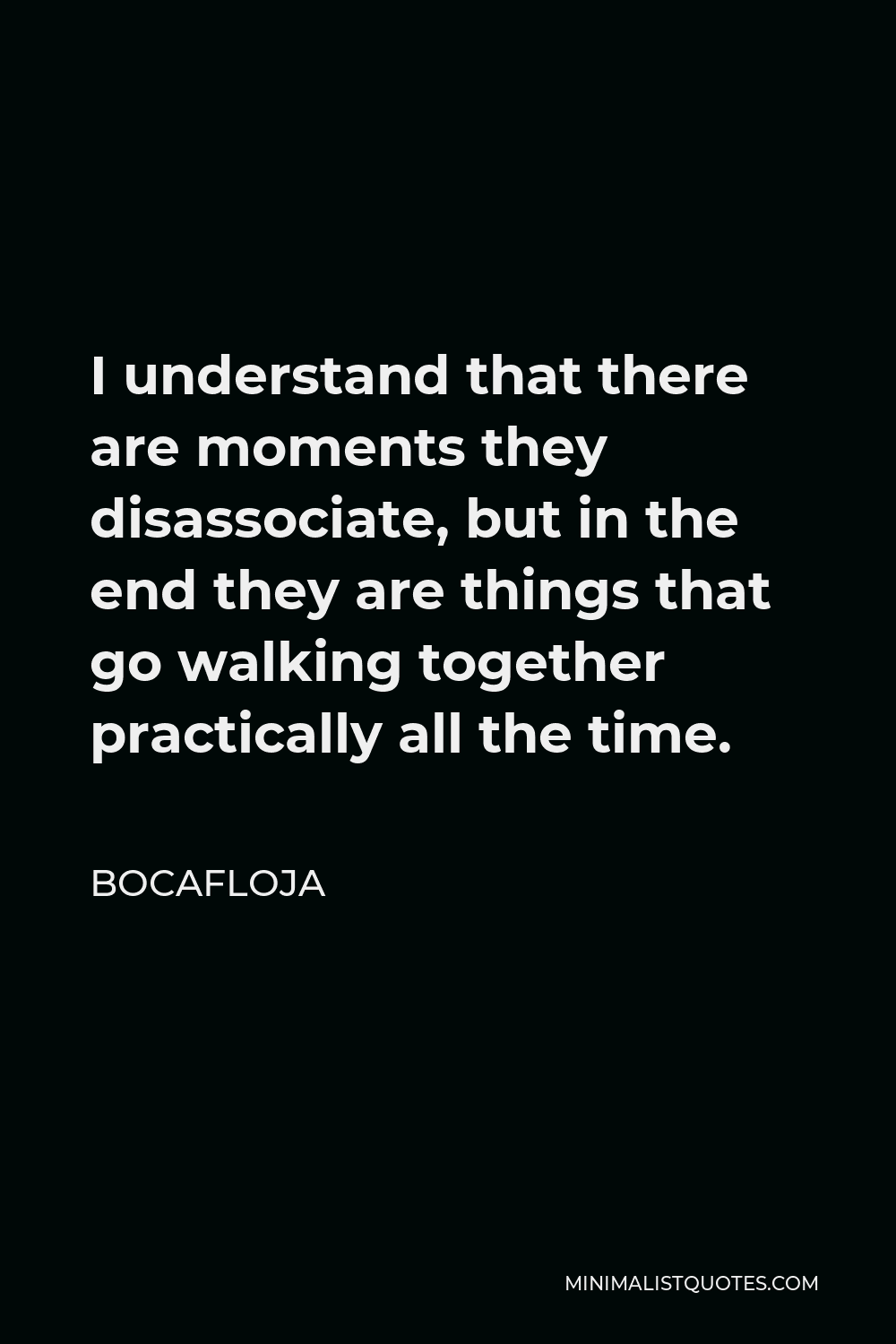
I understand that there are moments they disassociate, but in the end they are things that go walking together practically all the time.
BOCAFLOJA -





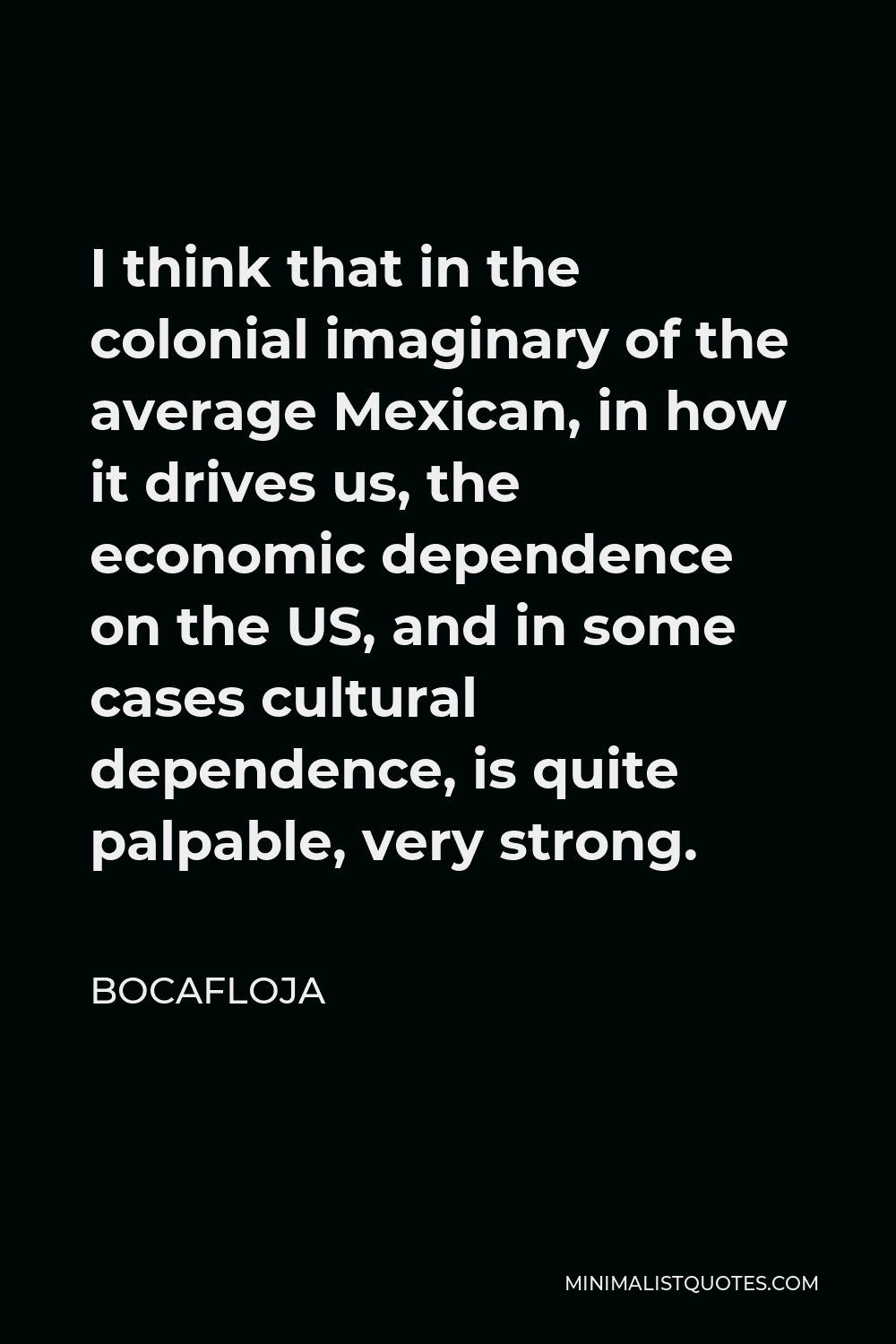
I think that in the colonial imaginary of the average Mexican, in how it drives us, the economic dependence on the US, and in some cases cultural dependence, is quite palpable, very strong.
BOCAFLOJA -





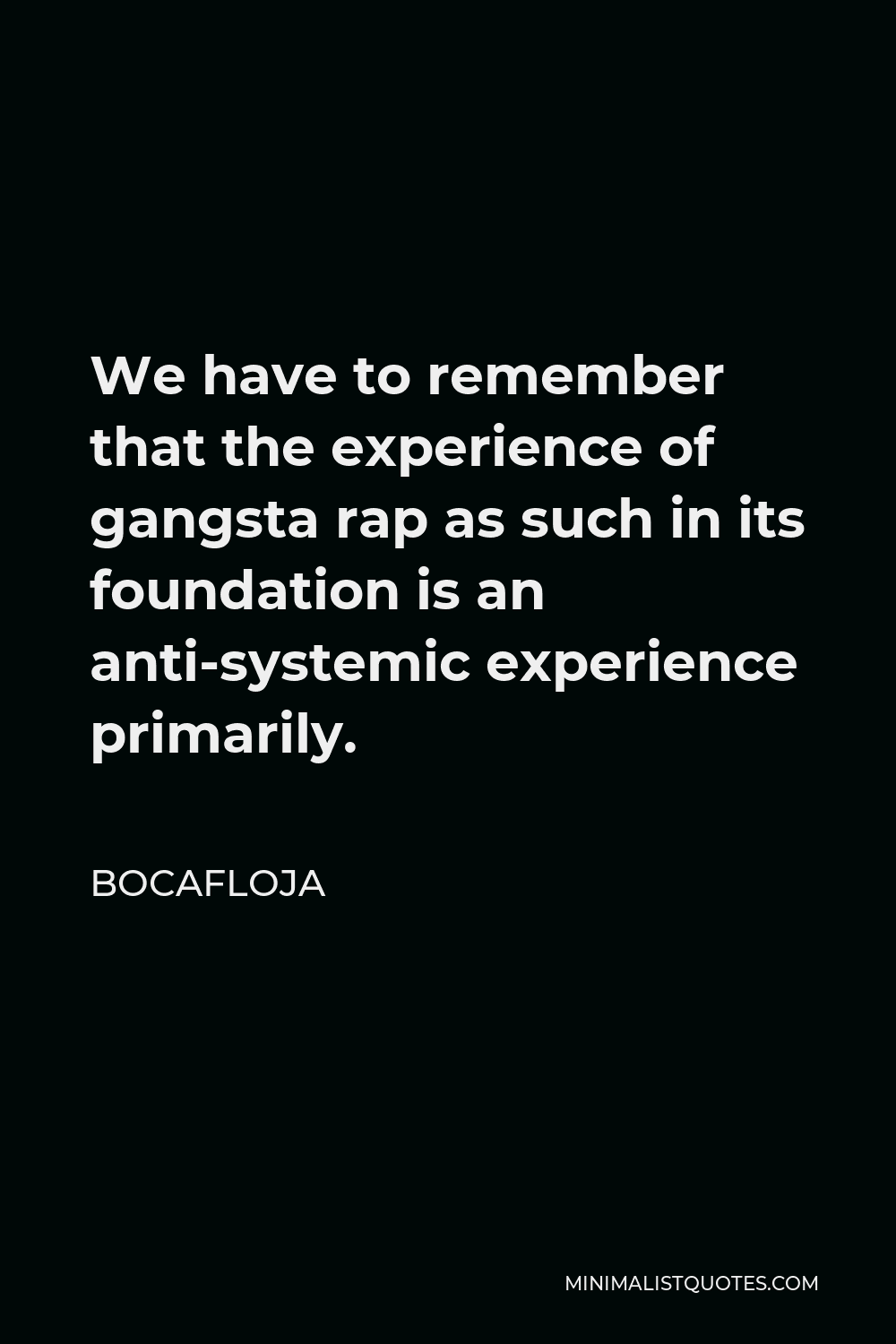
We have to remember that the experience of gangsta rap as such in its foundation is an anti-systemic experience primarily.
BOCAFLOJA -





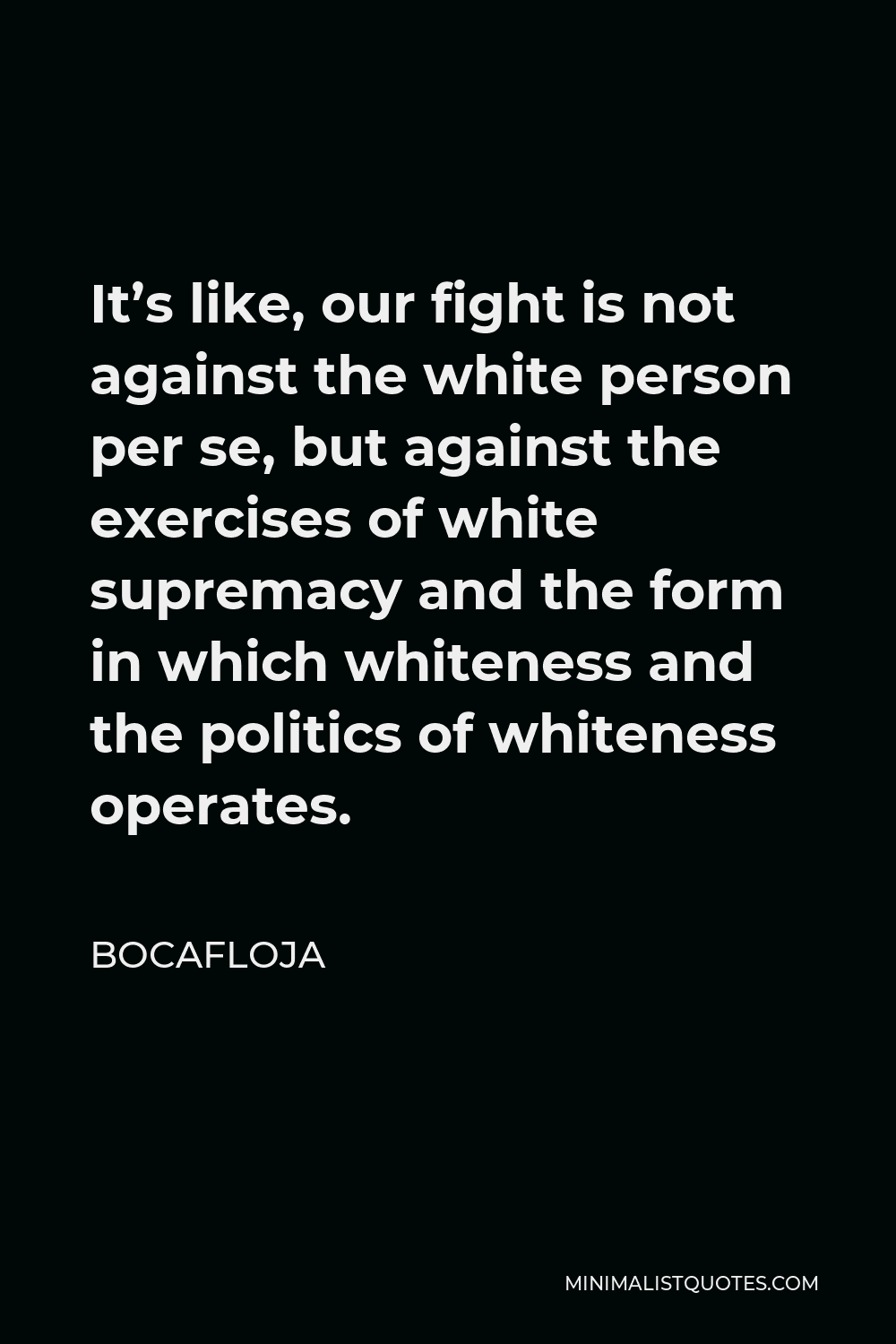
It’s like, our fight is not against the white person per se, but against the exercises of white supremacy and the form in which whiteness and the politics of whiteness operates.
BOCAFLOJA -





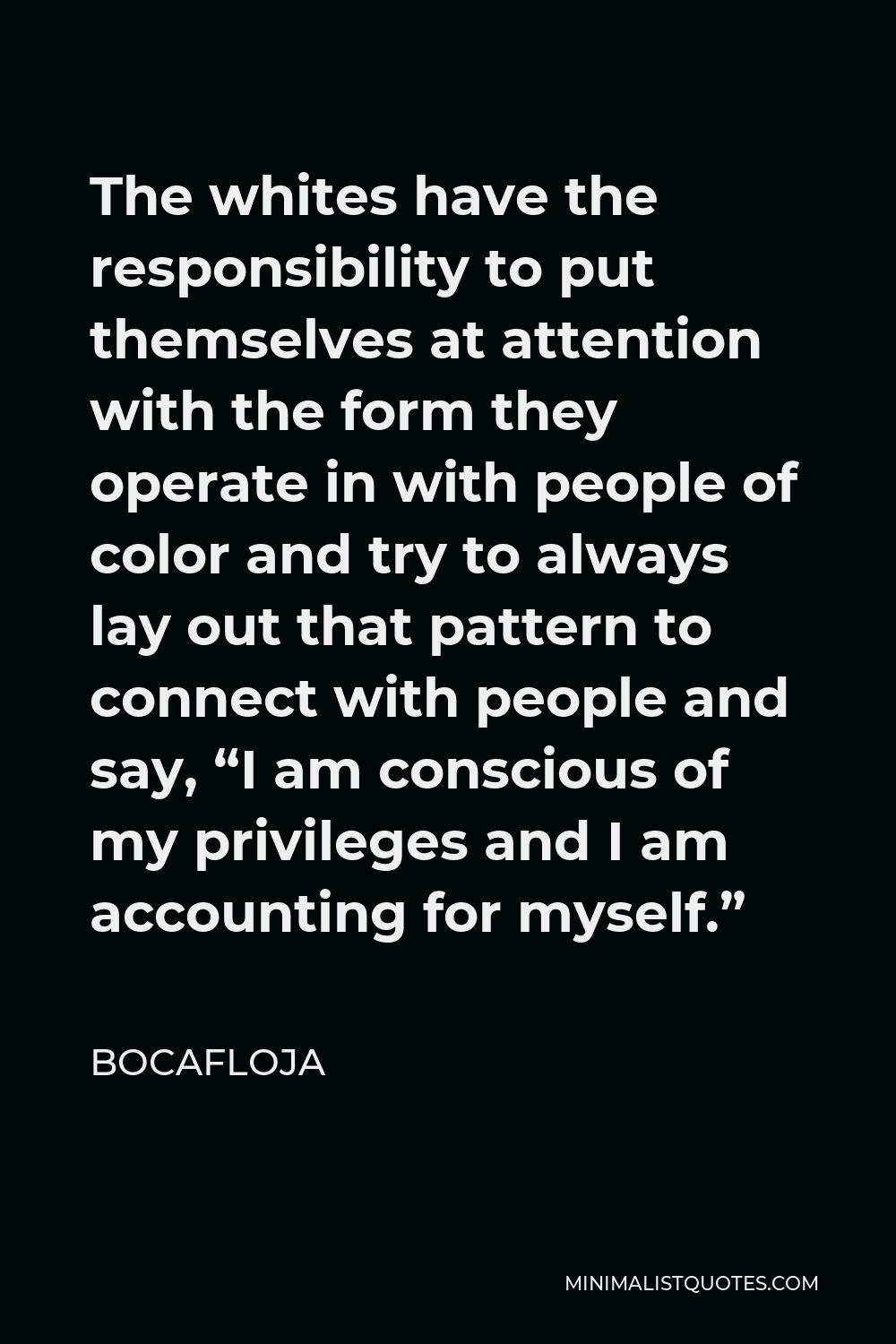
The whites have the responsibility to put themselves at attention with the form they operate in with people of color and try to always lay out that pattern to connect with people and say, “I am conscious of my privileges and I am accounting for myself.”
BOCAFLOJA -





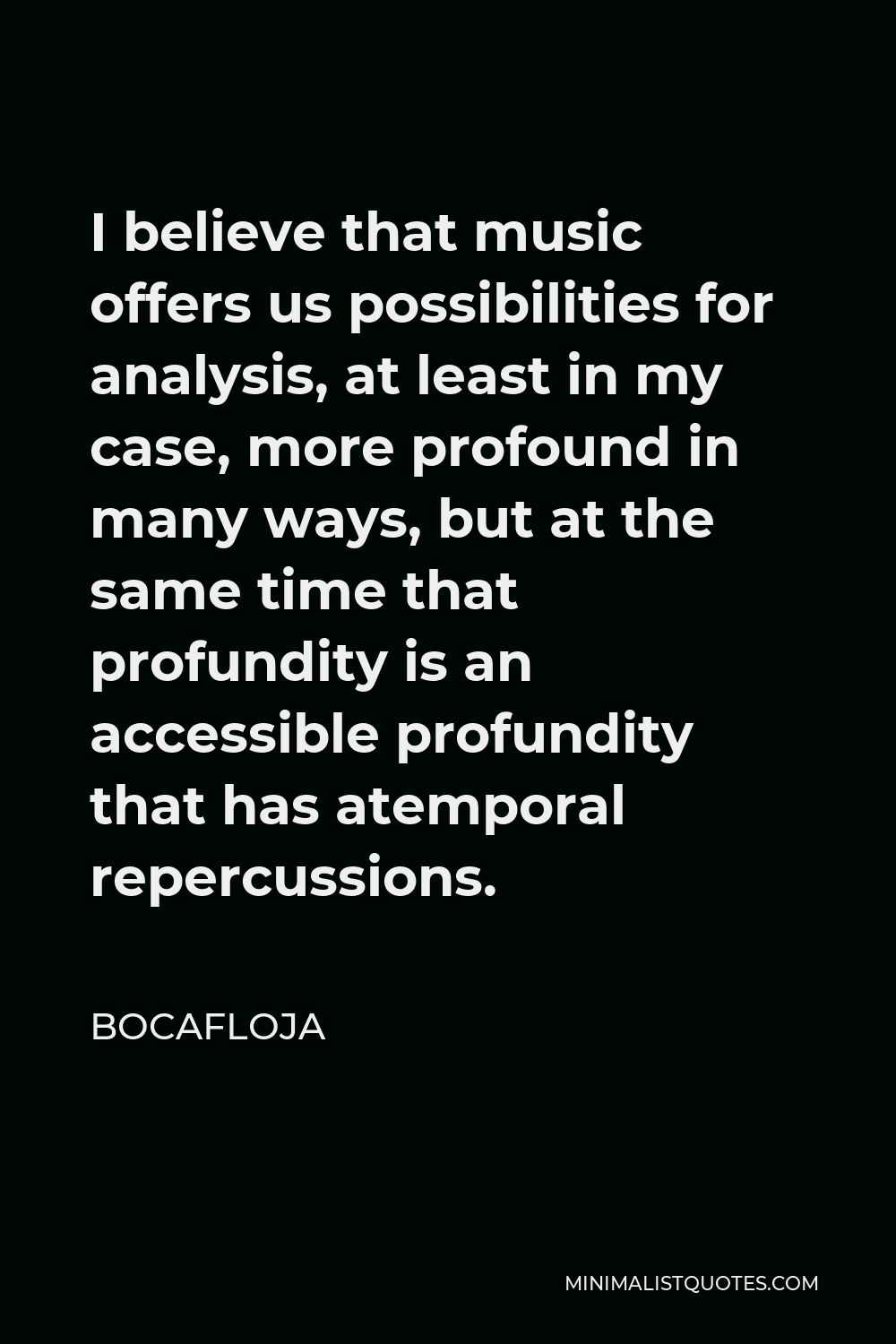
I believe that music offers us possibilities for analysis, at least in my case, more profound in many ways, but at the same time that profundity is an accessible profundity that has atemporal repercussions.
BOCAFLOJA -





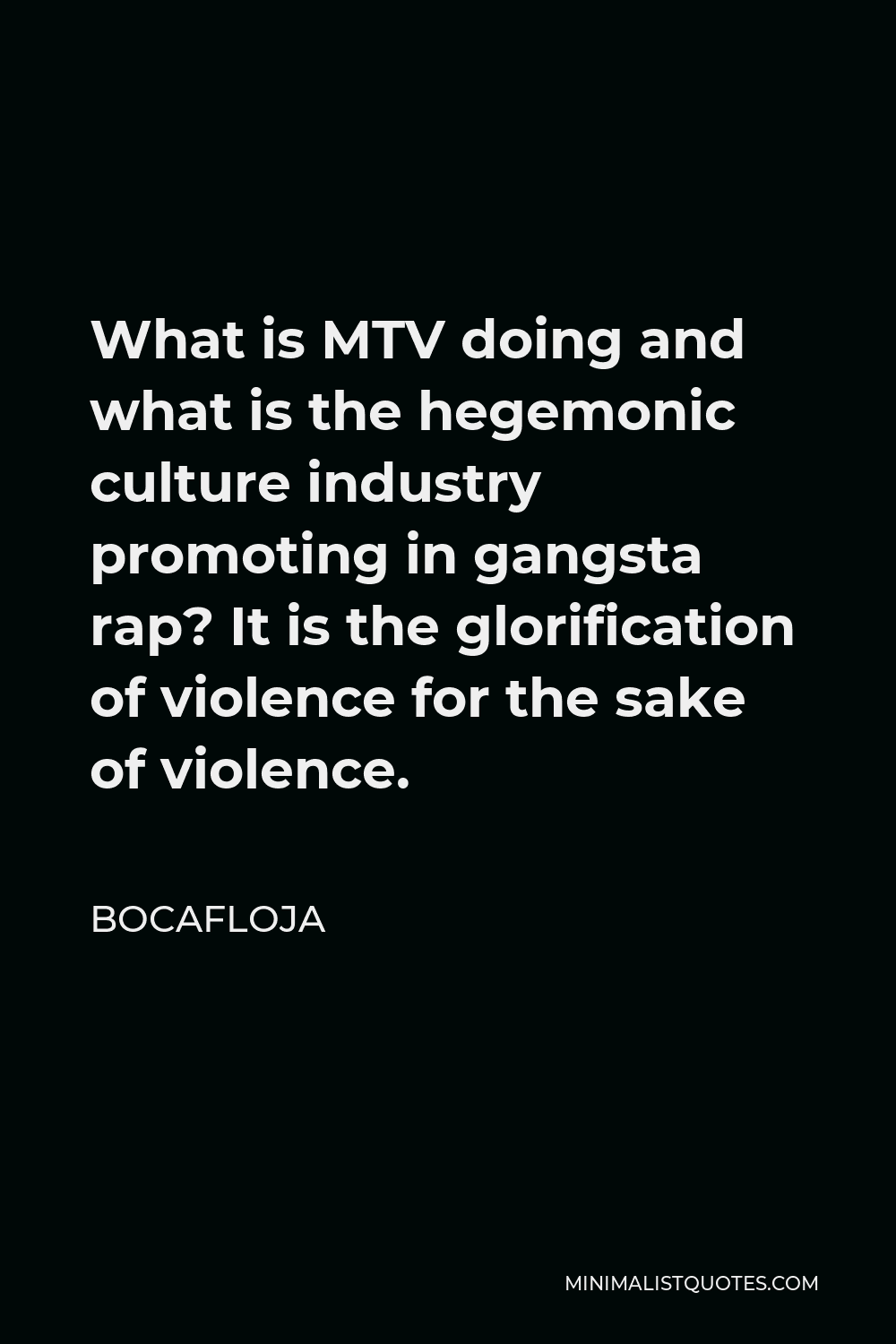
What is MTV doing and what is the hegemonic culture industry promoting in gangsta rap? It is the glorification of violence for the sake of violence.
BOCAFLOJA -





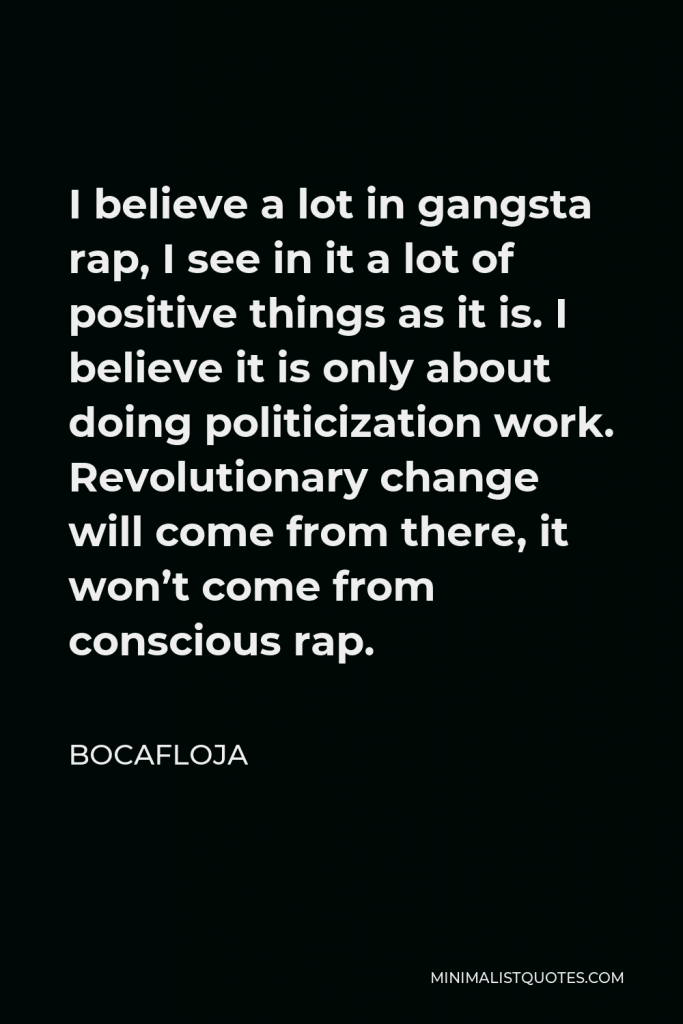

I believe a lot in gangsta rap, I see in it a lot of positive things as it is. I believe it is only about doing politicization work. Revolutionary change will come from there, it won’t come from conscious rap.
BOCAFLOJA -





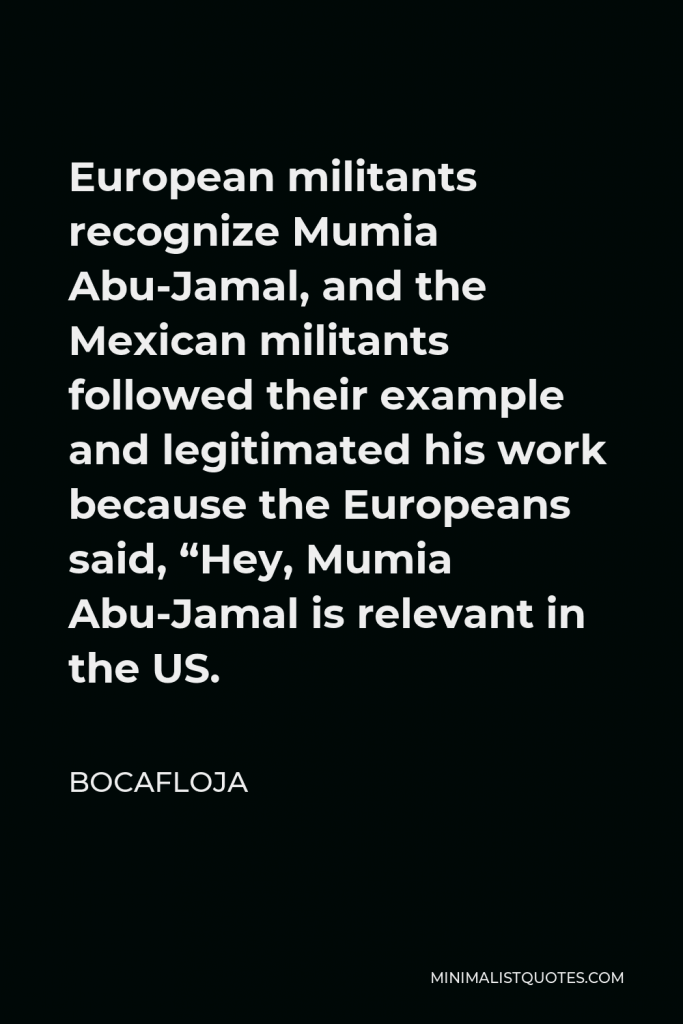

European militants recognize Mumia Abu-Jamal, and the Mexican militants followed their example and legitimated his work because the Europeans said, “Hey, Mumia Abu-Jamal is relevant in the US.
BOCAFLOJA -





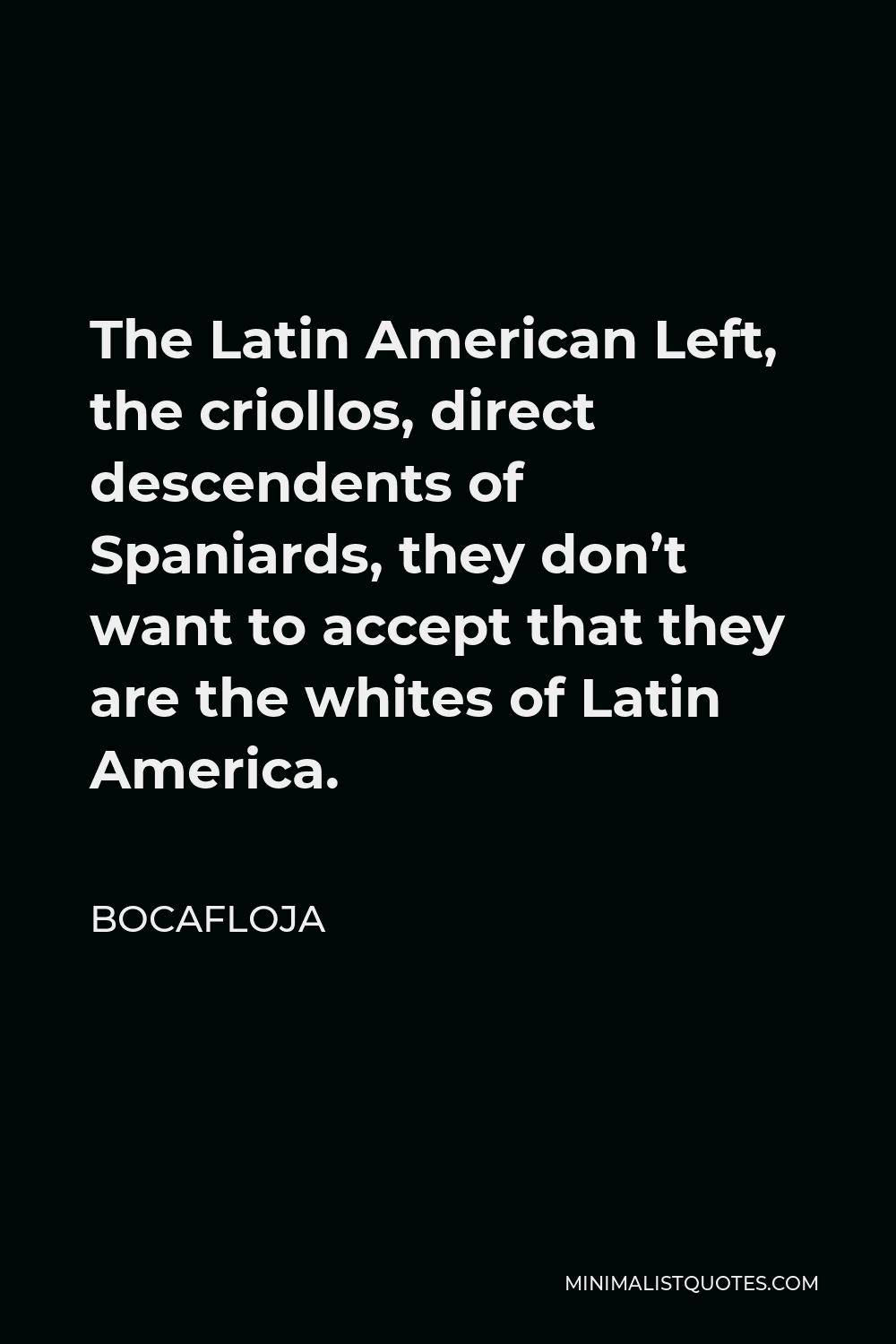
The Latin American Left, the criollos, direct descendents of Spaniards, they don’t want to accept that they are the whites of Latin America.
BOCAFLOJA -





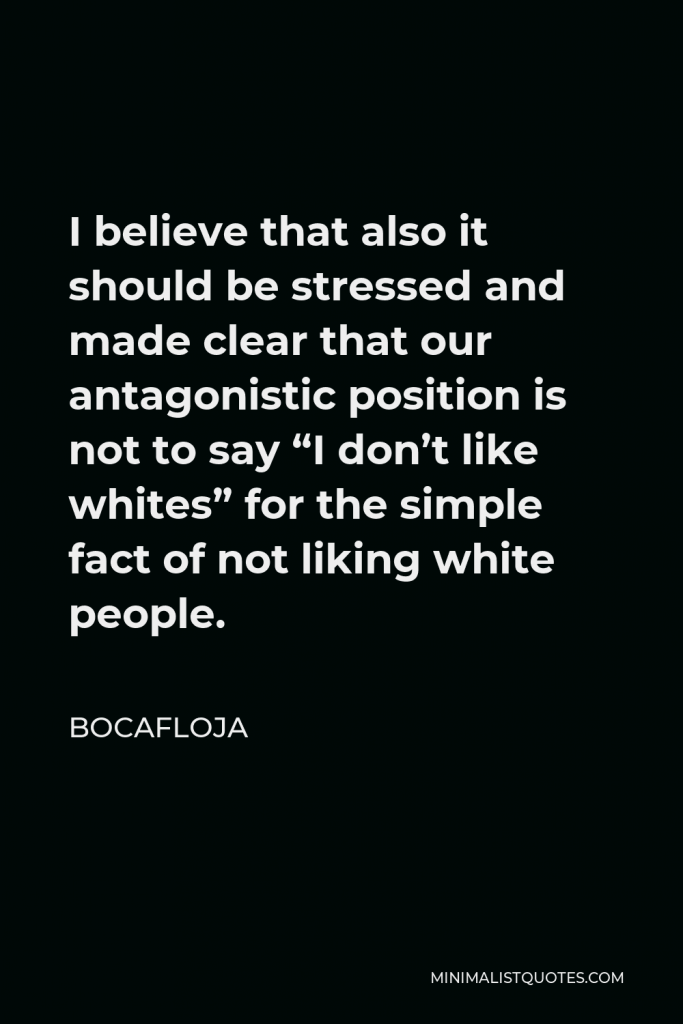

I believe that also it should be stressed and made clear that our antagonistic position is not to say “I don’t like whites” for the simple fact of not liking white people.
BOCAFLOJA -





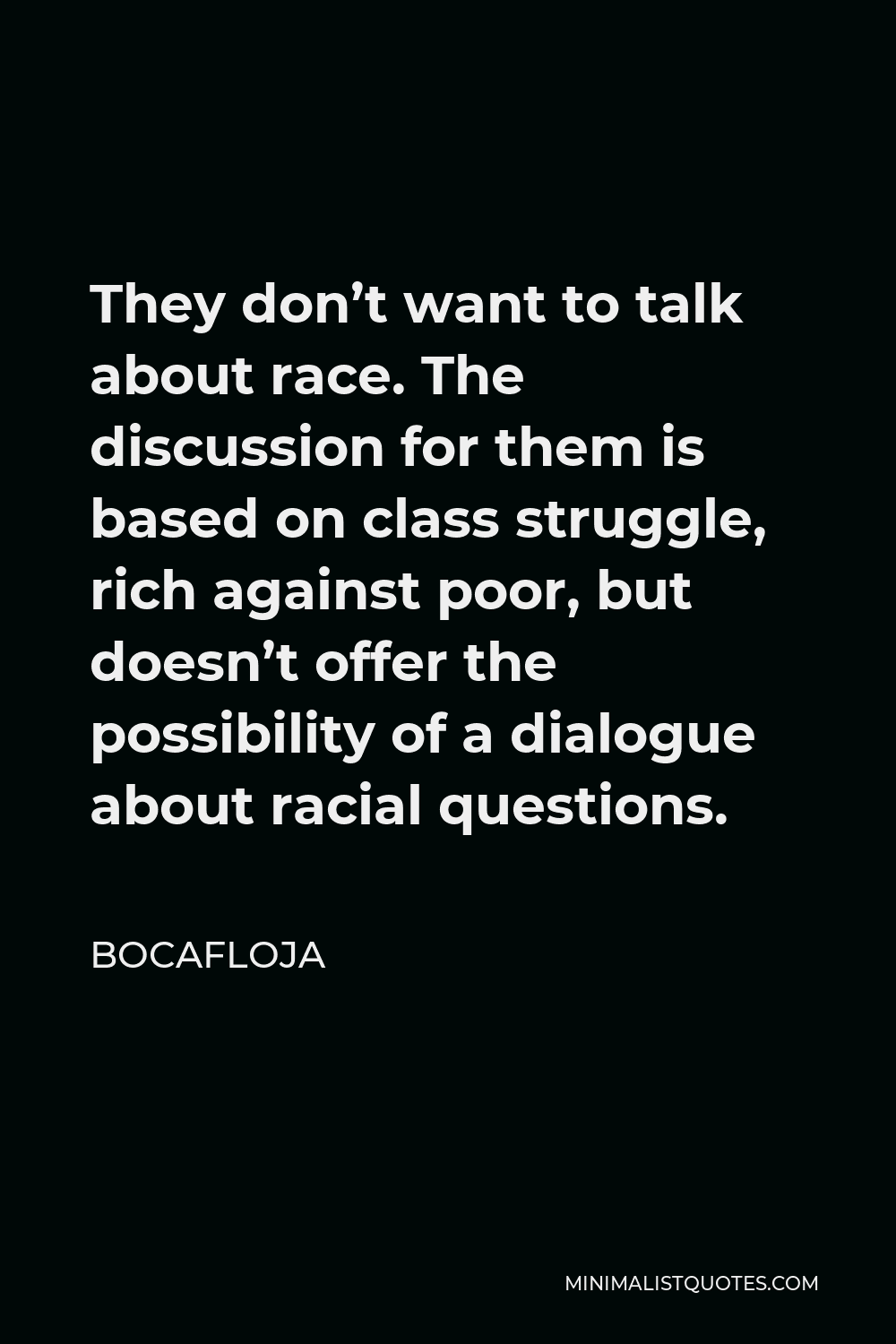
They don’t want to talk about race. The discussion for them is based on class struggle, rich against poor, but doesn’t offer the possibility of a dialogue about racial questions.
BOCAFLOJA
